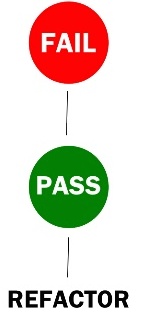
So far…
- Have introduced the basic tools of programming
But how do we know a program gives the right answer?
- We need to
- write programs that check their own operation
- write tests to catch the mistakes those self-checks miss
Confess!
Why don’t you write tests?
- “I don’t write buggy code”
- “It’s too hard”
- “It’s not interesting”
- “It takes too much time and I’ve research to do”
Ariane 5
- Ariane 5 used Ariane 4 code
- Ariane 5’s faster engines caused buffer overflow
- Buffer overflow caused Ariane 5 to explode!
- Unfortunately, code wasn’t properly tested
Millions of pounds down the drain, some very red faces
Consider Geoffrey Chang…
- Dept. of Molecular Biology, Scripps Institute
- 5th Annual Presidential Early Career Awards, 2000
- Beckerman Foundation Young Investigator Award, 2001
Three pharma publications in Science, 2001-2005
Letters – Retraction, Science 22 December 2006
And he’s not alone…
- “A Test of Corrections for Extraneous Signals in Gridded Surface Temperature Data”, R. McKitrick et al, Climate Research, 2004
- “McKitrick screws up yet again”, T. Lambert’s blog
- “McKitrick mucks it up”, J. Quiggin’s blog
- “ERRATUM”, Climate Research, 2004
- “formula … takes the angle in radians, but our data were entered in degrees”
He’s really not alone…
- “Worms: Identifying Impacts on Education and Health in the Presence of Treatment Externalities”, E. Miguel, M. Kremer, Econometrica, 2003
- “Wrong answers typed into the program”, Buzzfeed
- FreeSurfer neuroimaging analysis software
- Reviewed in PLOS one article “The Effects of FreeSurfer Version, …”, P. Habets et al.
- Results significantly different between v5.0.0 and two earlier versions and across machines
What testing gives you
- Confidence that your code does what it is supposed to
- That your research is built on a solid foundation
- Ability to detect, and fix, bugs more quickly
- Correct code (bugs caught early in the cycle)
- Confidence to refactor or fix bugs without creating new bugs
- Examples of how to use your code
- Sufficient code reuse
Continued …
- “if it’s not tested, it’s broken”
- bittermanandy, 10/09/2010
- NO code duplication (–> bug duplication)
Examples of unit testing frameworks
- Fortran: FRUIT, pFUnit
- R: RUnit, testthat
- MATLAB: Unit Testing Framework
- .NET: csUnit
- Java: JUnit
- PHP: PHPUnit, PHP Unit Testing Framework
- Python: * Nose *, Autotest
Learning Objectives
- how to write code defensively to guard against making errors
- how to use a unit testing framework
- when it’s useful to write tests before writing code
- how Python reports and handles errors
Test Driven Development
First write a test
Write code to pass the test
Clean up the code
Repeat
Red, Green, Refactor

Challenge
A colleague of yours has written a function that calculates the running total of all the values in a list, e.g., running([0, 1, 2]) produces the list [0, 1, 3].
Write some unit test functions for it in a test_running.py file (including from running import running at the top), and then use nosetests to see what bugs you can find.
Challenge
Write some unit tests for the
fahr_to_kelvinfunction intemp_conversion.py, which you can find inpython-unit-testing/code/temp_conversion.py. Place your unit tests in a new file calledtest_temp_conversion.pyin thepython-unit-testing/codedirectory, and usenoseto run the tests. Try and think about tests that could break your code - what are its limits?Once you’ve completed your tests, add them to version control along with your climate code.
Challenge
Write a function called addnumbers in addnumbers.py that passes the unit tests in test_addnumbers.py.
All addnumbers should do is add together all the numbers in a list and return the result.
OK, What’s the big deal?
Writing the tests made us look deeper
made us read the code very carefully
made us see both the good and the bad side
Refactored some incorrect or messy code
In the end, we have absolutely no fear about tearing the code to pieces and putting it back together again, even though we didn’t write it
Thank You!
/ − will be replaced by the title